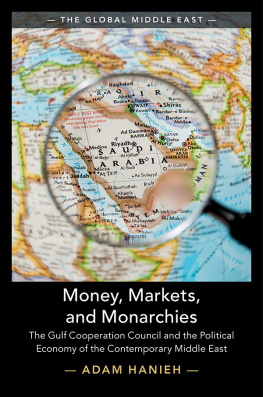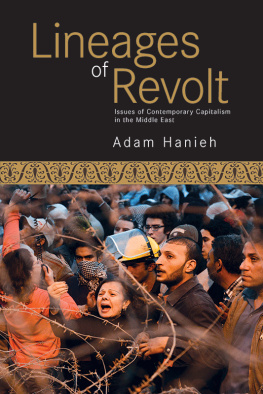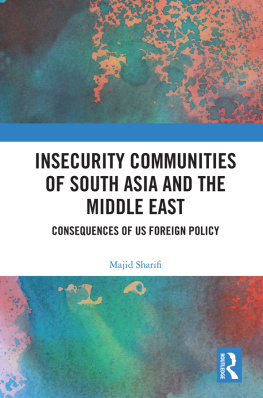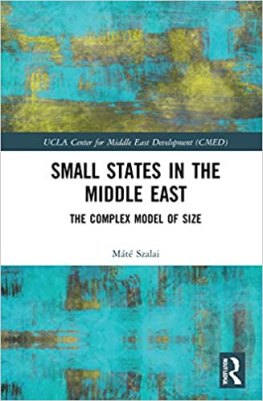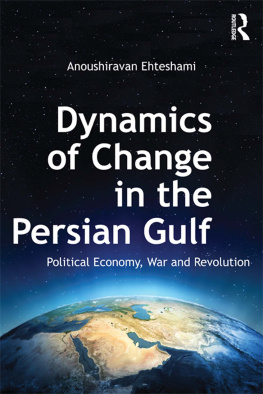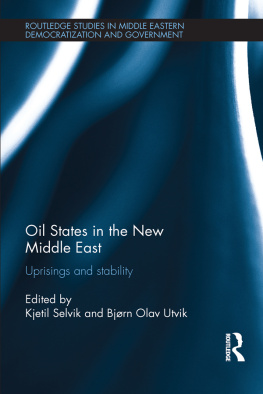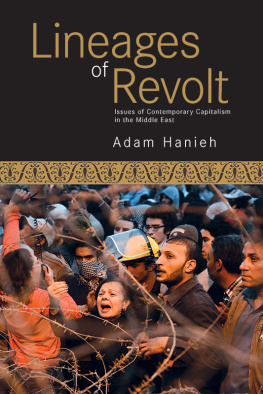Framed by a critical analysis of global capitalism, this book examines how the six states of the Gulf Cooperation Council are powerfully shaping the political economy of the wider Middle East. Through unprecedented and fine-grained empirical research encompassing sectors such as agribusiness, real estate, finance, retail, telecommunications, and urban utilities Adam Hanieh lays out the pivotal role of the Gulf in the affairs of other Arab states. This vital but little recognised feature of the Middle Easts political economy is essential to understanding contemporary regional dynamics, not least of which is the emergence of significant internal tensions within the Gulf itself.
Bringing fresh insights and a novel interdisciplinary approach to debates across political economy, critical geography, and Middle East studies, this book fills an important gap in how we understand the region and its place in the global order.
Adam Hanieh is a Reader in Development Studies at the School of Oriental and African Studies (SOAS), University of London. He holds a PhD in political science from York University, Canada, and his research examines the political economy of the Middle East, with a particular focus on the states of the Gulf Cooperation Council. His recent books include Capitalism and Class in the Gulf Arab States (2011), Lineages of Revolt: Issues of Contemporary Capitalism in the Middle East (2013), and (co-edited with Abdulhadi Khalaf and Omar AlShehabi) Transit States: Labour, Migration and Citizenship in the Gulf (2014).
General Editors
Arshin Adib-Moghaddam, SOAS, University of London
Ali Mirsepassi, New York University
Editorial Advisory Board
Faisal Devji, University of Oxford
John Hobson, University of Sheffield
Firoozeh Kashani-Sabet, University of Pennsylvania
Zachary Lockman, New York University
Madawi Al-Rasheed, London School of Economics and Political Science
David Ryan, University College Cork, Ireland
The Global Middle East series seeks to broaden and deconstruct the geographical boundaries of the Middle East as a concept to include North Africa, Central and South Asia, and diaspora communities in Western Europe and North America. The series features fresh scholarship that employs theoretically rigorous and innovative methodological frameworks resonating across relevant disciplines in the humanities and the social sciences. In particular, the general editors welcome approaches that focus on mobility, the erosion of nation-state structures, travelling ideas and theories, transcendental techno-politics, the decentralisation of grand narratives, and the dislocation of ideologies inspired by popular movements. The series will also consider translations of works by authors in these regions whose ideas are salient to global scholarly trends but have yet to be introduced to the Anglophone academy.
Other books in the series:
Transnationalism in Iranian Political Thought: The Life and Times of Ahmad Fardid , Ali Mirsepassi
Psycho-nationalism: Global Thought, Iranian Imaginations , Arshin Adib-Moghaddam
Iranian Cosmopolitanism: A Cinematic History , Golbarg Rekabtalaei
Money, Markets, and Monarchies
The Gulf Cooperation Council and the Political Economy of the Contemporary Middle East
Adam Hanieh
School of Oriental and African Studies, University of London
University Printing House, Cambridge CB2 8BS, United Kingdom
One Liberty Plaza, 20th Floor, New York, NY 10006, USA
477 Williamstown Road, Port Melbourne, VIC 3207, Australia
314321, 3rd Floor, Plot 3, Splendor Forum, Jasola District Centre, New Delhi 110025, India
79 Anson Road, #0604/06, Singapore 079906
Cambridge University Press is part of the University of Cambridge.
It furthers the Universitys mission by disseminating knowledge in the pursuit of education, learning, and research at the highest international levels of excellence.
www.cambridge.org
Information on this title: www.cambridge.org/9781108429146
DOI: 10.1017/9781108614443
Adam Hanieh 2018
This publication is in copyright. Subject to statutory exception and to the provisions of relevant collective licensing agreements, no reproduction of any part may take place without the written permission of Cambridge University Press.
First published 2018
Printed in the United Kingdom by Clays, St Ives plc, Elcograf S.p.A.
A catalogue record for this publication is available from the British Library .
Library of Congress Cataloging-in-Publication Data
Names: Hanieh, Adam, 1972- author.
Title: Money, markets, and monarchies : the gulf cooperation council and the political economy of the contemporary middle east / Adam Hanieh, School of Oriental and African Studies, University of London.
Description: 1 Edition. | New York : Cambridge University Press, 2018. | Series: The global Middle East ; 4 | Includes bibliographical references and index.
Identifiers: LCCN 2018010109| ISBN 9781108429146 (Hardback) | ISBN 9781108453158 (Paperback)
Subjects: LCSH: Gulf Cooperation Council. | Persian Gulf RegionEconomic integration. | Persian Gulf RegionEconomic policy. | Arab cooperation. | Persian Gulf RegionPolitics and government21st century. | BISAC: POLITICAL SCIENCE / Government / International.
Classification: LCC HC415.3 .H365 2018 | DDC 337.1/536dc23
LC record available at https://lccn.loc.gov/2018010109
ISBN 978-1-108-42914-6 Hardback
ISBN 978-1-108-45315-8 Paperback
Cambridge University Press has no responsibility for the persistence or accuracy of URLs for external or third-party internet websites referred to in this publication and does not guarantee that any content on such websites is, or will remain, accurate or appropriate.
Contents
Figures
Tables
Acknowledgements
The motivations for this book lie in my interest in processes of class and state formation across the six Gulf Arab monarchies: Saudi Arabia, the United Arab Emirates, Kuwait, Qatar, Oman, and Bahrain. In some of my earlier work I had begun to tentatively explore the connection between these states and the political economy of the wider Middle East, but it was the massive wave of social protest that erupted in December 2010 that led me to attempt a more systematic conceptualisation of these intra-regional connections. Since that time, the Gulf states have emerged as chief protagonists in the political trajectories of the Middle East; at the same time, the spiralling conflicts across the entire area seem to mark a profound setback to the hopes, dreams, and aspirations that first brought millions onto the streets a few short years ago. All of this confirms the importance of seeing the past in the present. I have tried to keep a sense of these temporalities broadly in view with the hope that the book may say something useful about how a better future might be reached.
Writing a book can appear as an intensely solitary experience, but I firmly believe that any intellectual endeavour is always a collective project pushed forward in dialogue with a wide range of diverse interactions, conversations, and debates. I am extremely privileged to work in the Department of Development Studies at the School of Oriental and African Studies (SOAS), where colleagues and students continue to make teaching and research such a pleasure. Many wonderful friends have discussed and debated the ideas in this book, helping in innumerable ways during the writing process and my trips to the region: Ala Jaradat, Alberto Toscano, Alessandra Mezzadri, Ali Cantay, Alfredo Saad-Filho, Ayed Abueqtaish, Brenna Bhandar, Burcu Erciyes, Catherine Cook, Christian Henderson, Dae-oup Chang, Gilbert Achcar, Greg Albo, Hanan Elmasu, Hazem Jamjoum, Laleh Khalili Leandro Vergara-Camus, Lori Allen, Mandy Turner, Mayssun Sukharieh, Mazen Masri, Mostafa Henaway, Nimer Sultany, Omar Shehabi, Paolo Novak, Paula Hevia, Parvathi Raman, Rashmi Varma, Robert Knox, Ryvka Barnard, Sahar Francis, Subir Sinha, Tieneke Dykstra, Yang-Ji Lee. I am particularly indebted to Dale Tomich, Jeffrey Webber, Rafeef Ziadah, Thomas Marois, and Tony Norfield, all of whom generously gave their time to read and critique various parts of the manuscript. I have learnt a lot from all these exchanges and continued to be inspired by their individual work as scholars across numerous disciplines.

